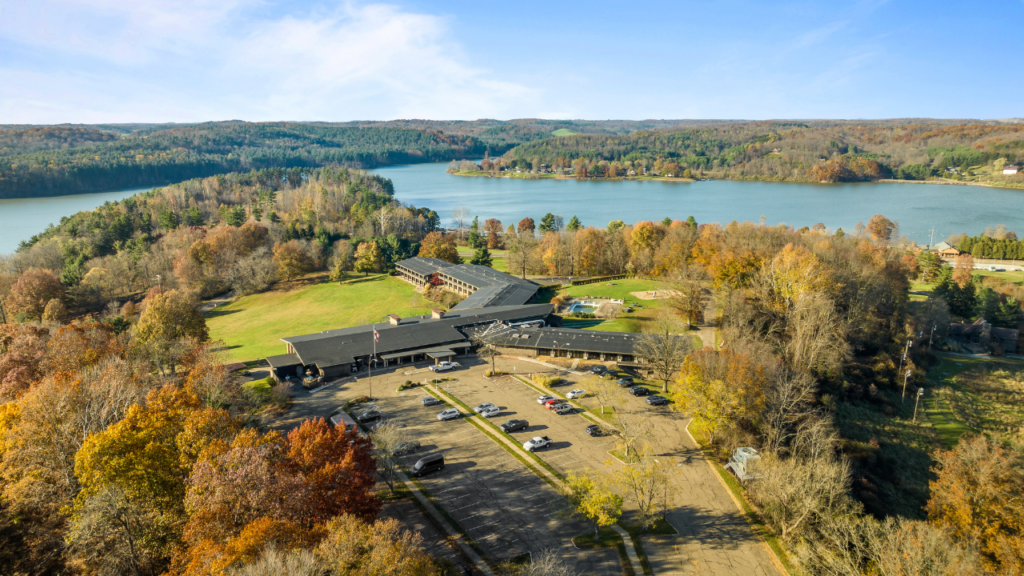The early stages of addiction recovery represent a critical period that often determines long-term success. During this vulnerable time, the comprehensive support provided by inpatient rehabilitation offers distinct advantages that can significantly strengthen your recovery foundation. At The Bluffs in Ohio, we’ve witnessed how residential treatment creates an optimal environment for healing, particularly during those initial weeks and months of sobriety.
The Crucial Role of Medical Supervision
Recovery from substance dependence often begins with the challenging process of withdrawal. Depending on the substance, duration of use and individual health factors, withdrawal symptoms can range from uncomfortable to potentially life-threatening without proper medical oversight.
Inpatient rehab provides continuous medical supervision throughout this critical phase. At facilities like The Bluffs, medical professionals monitor vital signs, administer appropriate medications to manage symptoms and respond immediately to any complications. This level of care significantly reduces discomfort while ensuring safety during detoxification.
Even after acute withdrawal subsides, ongoing medical care addresses the physical aspects of early recovery. Many individuals experience post-acute withdrawal symptoms or health conditions resulting from prolonged substance use. The 24/7 medical support available in residential settings enables prompt attention to these concerns, preventing minor issues from developing into setbacks that might derail recovery efforts.

Creating a Protective Environment
Environmental factors heavily influence addiction recovery. Inpatient rehab creates a carefully controlled setting free from the triggers, temptations and stressors that often contribute to substance use.
In residential treatment, you temporarily step away from environments associated with addiction—whether that means physical locations, social circles or daily routines that revolved around substance use. This separation creates essential space to develop new patterns and perspectives without constant exposure to triggering situations.
The structure of inpatient programs eliminates access to substances, removing the possibility of impulsive use during vulnerable moments. This protected environment allows you to focus entirely on healing without navigating high-risk situations before developing strong recovery skills.
Immersive Therapeutic Intervention
Inpatient rehabilitation provides an unparalleled concentration of therapeutic support. Rather than fitting recovery work around other responsibilities, residential treatment makes healing your primary focus.
Daily schedules typically include multiple therapeutic components designed to address different aspects of addiction and recovery. Individual counseling sessions provide personalized guidance and support from trained therapists who help you explore underlying issues contributing to substance use. Group therapy offers perspectives from peers navigating similar challenges while building essential social support. Educational workshops develop understanding of addiction mechanisms and effective recovery strategies.
The immersive nature of this therapeutic environment accelerates progress. Insights gained during morning sessions can be immediately reinforced and applied throughout the day with support from clinical staff and peers. This continuous reinforcement helps integrate new perspectives and behaviors more quickly than intermittent outpatient sessions might allow.
The Power of Recovery Community
Addiction often thrives in isolation, making community connection a powerful antidote. Inpatient rehab surrounds you with others committed to recovery—both professional staff and fellow patients.
Within residential treatment, you connect with individuals who truly understand addiction challenges through their own experiences. These relationships reduce the isolation commonly felt during early recovery and provide living examples that lasting change is possible. Shared experiences foster authentic connections based on mutual understanding rather than judgment.
The residential community also creates opportunities for real-time feedback and accountability. As you practice new communication styles, boundary-setting and coping skills, those around you provide immediate insights about these efforts. This continuous feedback loop accelerates personal growth in ways difficult to replicate in less intensive treatment settings.
Full Focus on Recovery
Perhaps the most significant advantage of inpatient rehab is the opportunity to make recovery your singular priority. During residential treatment, you temporarily set aside external responsibilities to concentrate entirely on healing.
Without the distractions of work demands, family obligations or daily logistical concerns, you can direct your full mental and emotional energy toward recovery work. This focused attention allows deeper engagement with therapeutic processes and more thorough integration of recovery principles.
Many individuals report that this period of dedicated healing provides clarity impossible to achieve while balancing treatment with daily responsibilities. The space to reflect, process emotions and develop new perspectives without external pressures creates a stronger foundation for lasting recovery.
Comprehensive Healing Approach
Effective addiction treatment addresses multiple dimensions of wellness. Inpatient rehab offers integrated approaches that simultaneously target physical, psychological, emotional and social aspects of recovery.
Physical healing begins with medical detoxification and continues through nutrition support, exercise options and sleep regulation—all crucial elements often disrupted during active addiction. Psychological healing unfolds through evidence-based therapeutic approaches addressing thought patterns, behaviors and underlying mental health concerns. Emotional regulation skills develop through specialized therapeutic modalities and consistent practice in a supportive environment. Social reconnection occurs through family therapy, community integration and relationship skill development.
This holistic approach recognizes that lasting recovery requires attention to each dimension of wellness. The comprehensive care available in residential settings ensures no aspect of healing gets overlooked during this foundational period.
Structured Days, Structured Healing
Chaotic lifestyles often accompany active addiction. Inpatient rehab introduces healthy structure that supports recovery and establishes patterns that can continue after treatment.
Residential programs typically follow consistent daily schedules including designated times for therapy, meals, recreation, personal reflection and rest. This predictable structure helps regulate sleep patterns, improve nutrition and establish healthy routines often disrupted during active substance use.
Beyond these practical benefits, structured programming develops discipline and responsibility that transfer to independent recovery management. Learning to follow schedules, complete assignments and participate consistently in treatment activities builds skills needed for successful reintegration into work, education or family responsibilities after treatment.
Smoother Transitions Through Levels of Care
Recovery typically involves multiple levels of treatment intensity, gradually stepping down from higher to lower levels of support. Inpatient rehab provides seamless transitions between these levels under professional guidance.
Many residential facilities like The Bluffs offer integrated continuums of care where patients progress from detoxification through residential treatment and eventually to outpatient programming. This coordinated approach ensures consistent therapeutic messaging, relationship continuity with providers and appropriate timing for transitions based on individual progress rather than predetermined timelines.
Clinical teams continuously assess readiness for transitions, adjusting support levels as recovery stabilizes. This graduated approach allows you to practice increasing independence while maintaining access to support when needed—a balance that protects early recovery while building confidence in self-management skills.
Making the Decision: Is Inpatient Rehab Right for You?
While inpatient rehab offers significant advantages, determining the appropriate level of care requires consideration of your specific circumstances. Factors influencing this decision include:
Severity and duration of substance use often indicate appropriate treatment intensity. Higher levels of dependence typically benefit from the comprehensive support of residential care. Previous treatment experiences provide insight into what approaches have and haven’t worked. Multiple unsuccessful attempts at lower levels of care may suggest the need for more intensive treatment. Current living environment stability impacts recovery success. Unsafe or triggering home situations often necessitate temporary residential treatment. Co-occurring mental or physical health conditions may require the integrated care available in residential settings. Available support systems influence treatment needs. Limited family or social support might indicate the benefits of residential community.
Professional assessment helps determine the most appropriate level of care based on these and other individual factors. At The Bluffs, our assessment process evaluates these considerations to recommend the treatment approach most likely to support your successful recovery.
Beginning Your Recovery Journey
If you or someone you love struggles with addiction, exploring inpatient rehabilitation options represents a courageous step toward lasting change. The early investment in comprehensive treatment often yields significant long-term benefits through stronger recovery foundations and reduced risk of relapse.
At The Bluffs, we provide comprehensive inpatient rehabilitation in a supportive Ohio setting designed to address each aspect of early recovery. Our experienced team guides patients through medical detoxification, residential treatment and transition planning with compassionate, evidence-based care.
To learn more about our inpatient rehab programs and how they might support your recovery journey, call us today. Our admissions team welcomes your questions and stands ready to help you take this important step toward lasting wellness.








